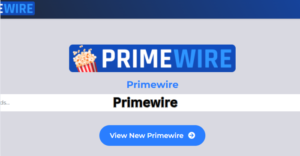i.a.m_sellingluxury- Elevating Your Luxury Brand Online

In today’s digital age, the luxury market demands more than just high-end products; it requires a sophisticated approach to branding, marketing, and customer engagement. The keyword “i.a.m_sellingluxury” represents the intersection of luxury sales and modern digital strategies.
This comprehensive guide will delve into the nuances of selling luxury items online, offering unique insights, actionable strategies, and detailed analyses that will set you apart in the competitive luxury market.
Understanding the Luxury Market:
To master the art of i.a.m_sellingluxury, it’s essential to first understand the luxury market. This segment is characterized by high-quality, exclusive products that offer more than just functionality—they provide a sense of status, prestige, and unparalleled craftsmanship.
Characteristics of the Luxury Market:
- Exclusivity: Luxury brands thrive on exclusivity. Limited editions and bespoke services create a sense of scarcity and desirability.
- High Quality: The cornerstone of any luxury brand is its commitment to superior quality. This involves meticulous attention to detail, use of premium materials, and exceptional craftsmanship.
- Heritage and Storytelling: Many luxury brands have rich histories and stories that are integral to their identity. These narratives add depth and value to the brand.
- Prestige Pricing: Luxury products often come with a high price tag, which reinforces their exclusivity and high status.
Market Segmentation:
- Aspirational Buyers: Individuals who aspire to own luxury items but may not have the purchasing power yet.
- Affluent Consumers: High net-worth individuals who have the financial capability to purchase luxury goods frequently.
- Super-Rich Elite: Ultra-high-net-worth individuals who seek the rarest and most exclusive luxury products.
Building Your Luxury Brand:
Creating a successful luxury brand goes beyond selling products; it involves crafting a compelling story and developing a distinct visual identity.
Crafting Your Brand Story:
- Highlight Your Heritage: Emphasize the history and tradition behind your brand. This could include the origin of the brand, the founders’ vision, and key milestones.
- Showcase Craftsmanship: Detail the intricate processes and skilled artisans behind your products. This adds an element of authenticity and value.
- Emphasize Values: Communicate your brand’s core values, such as sustainability, innovation, or exclusivity.
Visual Identity and Aesthetics:
- Logo and Typography: Choose a sophisticated and timeless logo and typography that exudes elegance.
- Color Palette: Use a color palette that resonates with luxury, such as gold, black, or deep jewel tones.
- Photography and Imagery: Invest in high-quality imagery that highlights the beauty and craftsmanship of your products.
Digital Marketing Strategies for Luxury Brands:
In the digital age, effective marketing strategies are essential for reaching and engaging luxury consumers. Here are key strategies to consider:
Social Media Marketing:
Social media platforms are powerful tools for luxury brands to showcase their products and engage with their audience.
Platforms to Focus On:
- Instagram: With its visual-centric nature, Instagram is ideal for showcasing luxury products through high-quality images and videos.
- Facebook: Utilize Facebook for targeted advertising campaigns and community building.
- LinkedIn: For B2B luxury brands, LinkedIn can be used to connect with professionals and other businesses.
Best Practices:
- High-Quality Content: Ensure all content, from images to videos, is of the highest quality.
- Influencer Collaborations: Partner with influencers who align with your brand values to reach a wider audience.
- Engagement: Actively engage with your audience through comments, direct messages, and interactive content like polls and stories.
Content Marketing:
Content marketing involves creating valuable, relevant content to attract and retain a clearly defined audience.
Types of Content:
- Blog Posts: Write informative and engaging blog posts about topics related to your products and brand.
- Videos: Create high-quality videos that showcase your products, behind-the-scenes footage, and brand stories.
- E-books and Whitepapers: Offer in-depth insights into your brand’s industry or expertise.
Strategies:
- SEO Optimization: Ensure your content is optimized for search engines to increase visibility.
- Consistency: Publish content regularly to keep your audience engaged.
- Value-Driven: Focus on providing value to your audience rather than just promoting your products.
SEO for Luxury Brands:
- Keyword Research: Identify and use relevant keywords like “i.a.m_sellingluxury” to attract your target audience.
- On-Page SEO: Optimize your website’s content, meta descriptions, and tags with targeted keywords.
- High-Quality Backlinks: Build backlinks from reputable websites to increase your site’s authority.
Engaging the Luxury Customer:
Understanding and engaging your customers is vital in the luxury market. Here’s how to do it effectively:
Understanding Customer Psychology
- Emotional Appeal: Highlight the emotional benefits of your products, such as the status and pride associated with owning them.
- Storytelling: Use storytelling to create a connection between your brand and the customer.
Creating Exclusive Experiences:
- Private Events: Host exclusive events for your top customers.
- Personalized Services: Offer personalized shopping experiences, such as bespoke products or personal shopping assistants.
- VIP Programs: Create VIP programs that offer special perks, such as early access to new products or private sales.
Augmented Reality (AR) and Virtual Reality (VR):
AR and VR technologies can provide immersive experiences for luxury shoppers
- Virtual Try-Ons: Allow customers to virtually try on products such as clothing or accessories.
- Virtual Showrooms: Create virtual showrooms where customers can explore your products in a digital environment.
Sustaining Luxury Through Customer Loyalty:
Personalized Customer Service:
- Tailored Recommendations: Use data to provide personalized product recommendations.
- Dedicated Support: Provide dedicated support channels for high-value customers.
Loyalty Programs and VIP Experiences:
- Exclusive Rewards: Offer exclusive rewards and benefits to loyal customers.
- Special Access: Provide special access to events, products, or services.
Successful Luxury Brands:
Brand Spotlight:
1.Heritage Branding: Emphasizing its rich history and craftsmanship.
2.Innovative Marketing: Utilizing cutting-edge marketing techniques and collaborations.
Brand Spotlight:
- Timeless Appeal: Maintaining a timeless and elegant brand image.
- Exclusive Collections: Offering exclusive collections and limited editions.
Conclusion:
As the luxury market continues to evolve, embracing digital strategies and technological advancements will be crucial.
By understanding your customers, leveraging technology, and maintaining a strong brand identity, you can excel in the world of i.a.m_sellingluxury and achieve sustained success in the competitive luxury market.
FAQ’s:
1. What is i.a.m_sellingluxury?
i.a.m_sellingluxury refers to the modern approach of selling luxury items using advanced digital strategies and understanding customer needs to create a premium shopping experience.
2. How can social media boost my luxury brand?
Social media can enhance brand visibility, engage with potential customers, and showcase your products through high-quality visuals and strategic partnerships with influencers.
3. What role does content marketing play in luxury sales?
Content marketing helps in building a compelling brand narrative, educating customers, and driving engagement through valuable and relevant content.
4. Why is customer loyalty important in the luxury market?
Customer loyalty fosters repeat business, enhances brand reputation, and ensures a stable revenue stream by creating long-term relationships with high-value customers.
5. How can I use AR and VR to enhance my luxury brand?
AR and VR technologies can provide immersive experiences, such as virtual try-ons and showrooms, enhancing the online shopping experience and engaging customers in new ways.
6. What are the best practices for SEO in luxury branding?
Best practices include conducting thorough keyword research, optimizing on-page elements, and building high-quality backlinks to improve your brand’s search engine ranking.
7. How do I create a compelling brand story?
A compelling brand story should highlight your brand’s heritage, craftsmanship, and core values, connecting emotionally with your audience and differentiating your brand from competitors.
8. What are some examples of successful luxury brands?
Examples include Louis Vuitton and Chanel, known for their strong brand identity, effective marketing strategies, and exclusive product offerings.
9. How can I create exclusive experiences for my customers?
Exclusive experiences can include private events, personalized services, and VIP programs that offer unique perks and benefits to your top customers.
10 .What is the future of luxury sales online?
The future of luxury sales online involves increased use of digital and technological advancements, enhanced personalization, and a continued focus on creating exclusive and immersive customer experiences.
By integrating these strategies and insights, you’ll be well-equipped to excel in the realm of i.a.m_sellingluxury and elevate your luxury brand to new heights.





